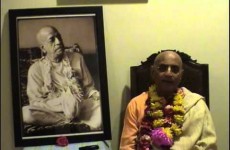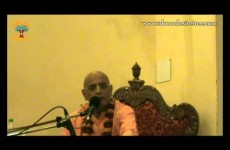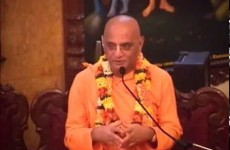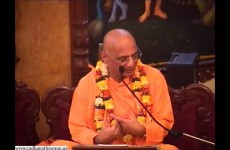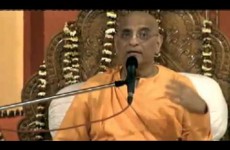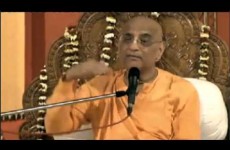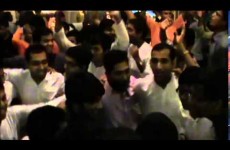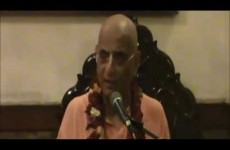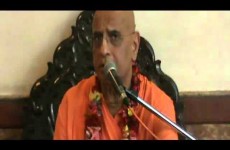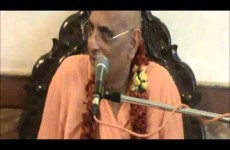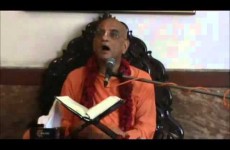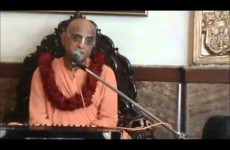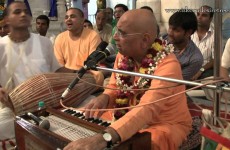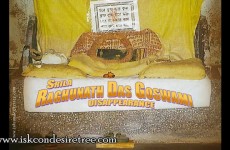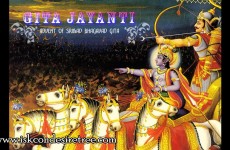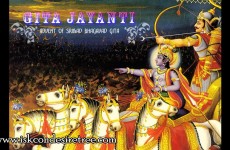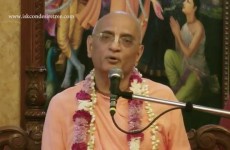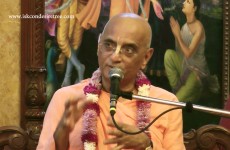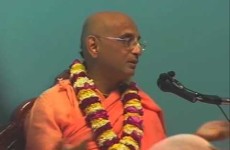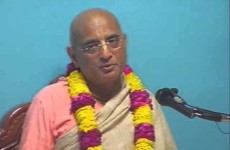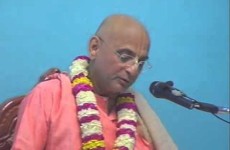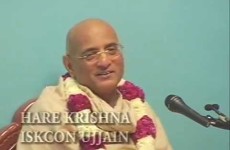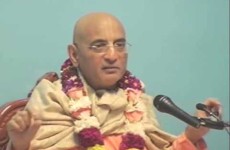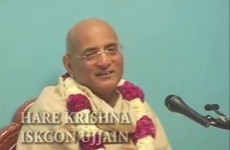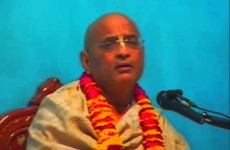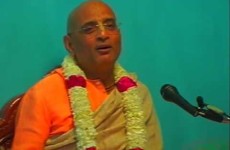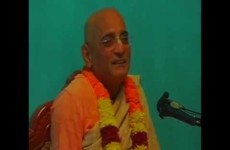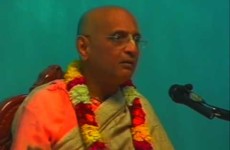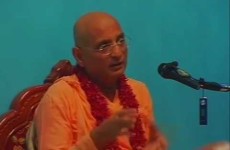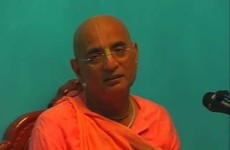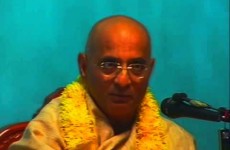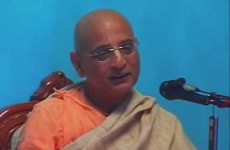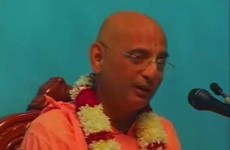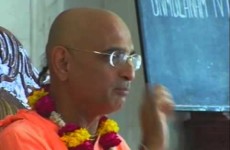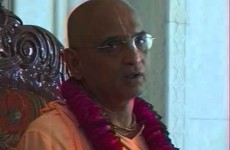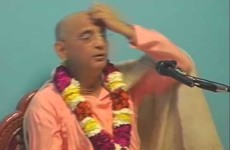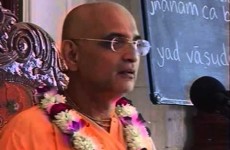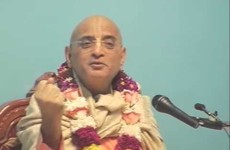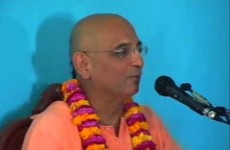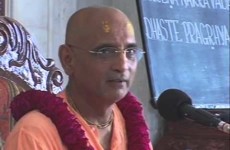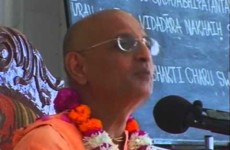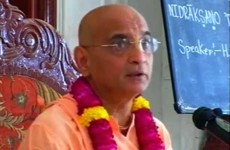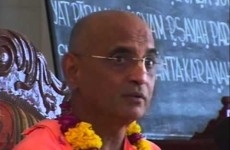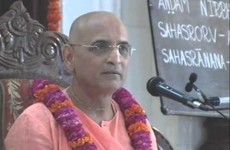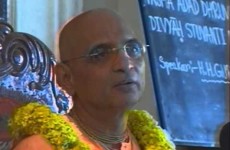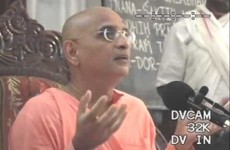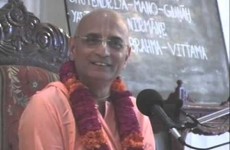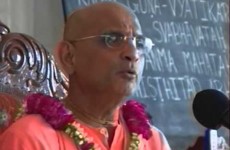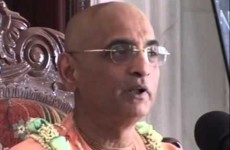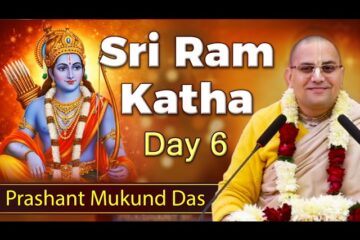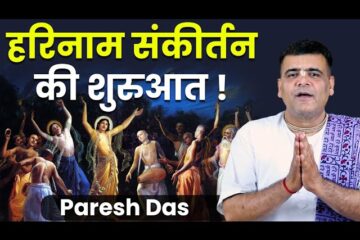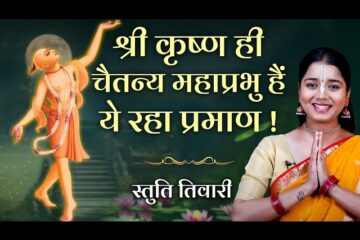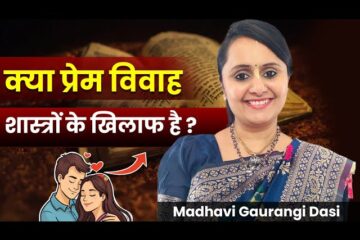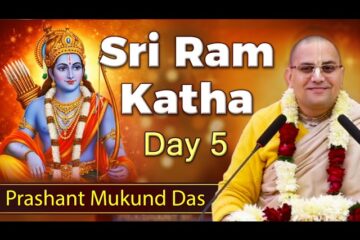Srimad Bhagavatam Canto-02, Chapter-01, Text-10
tad aham te ’bhidhasyami
maha-paurusiko bhavan
yasya sraddadhatam asu
syan mukunde matih sati
Translation by His Divine Grace A. C. Bhaktivedanta Swami Srila Prabhupada:
That very Srimad-Bhagavatam I shall recite before you because you are the most sincere devotee of Lord Krsna. One who gives full attention and respect to hearing Srimad-Bhagavatam achieves unflinching faith in the Supreme Lord, the giver of salvation.
Purport by His Divine Grace A. C. Bhaktivedanta Swami Srila Prabhupada:
Srimad-Bhagavatam is recognized Vedic wisdom, and the system of receiving Vedic knowledge is called avaroha-pantha, or the process of receiving transcendental knowledge through bona fide disciplic succession. For advancement of material knowledge there is a need for personal ability and researching aptitude, but in the case of spiritual knowledge, all progress depends more or less on the mercy of the spiritual master. The spiritual master must be satisfied with the disciple; only then is knowledge automatically manifest before the student of spiritual science. The process should not, however, be misunderstood to be something like magical feats whereby the spiritual master acts like a magician and injects spiritual knowledge into his disciple, as if surcharging him with an electrical current. The bona fide spiritual master reasonably explains everything to the disciple on the authorities of Vedic wisdom. The disciple can receive such teachings not exactly intellectually, but by submissive inquiries and a service attitude. The idea is that both the spiritual master and the disciple must be bona fide. In this case, the spiritual master, Sukadeva Gosvami, is ready to recite exactly what he has learned from his great father Srila Vyasadeva, and the disciple, Maharaja Pariksit, is a great devotee of Lord Krsna. A devotee of Lord Krsna is he who believes sincerely that by becoming a devotee of the Lord one becomes fully equipped with everything spiritual. This teaching is imparted by the Lord Himself in the pages of the Bhagavad-gita, in which it is clearly described that the Lord (Sri Krsna) is everything, and that to surrender unto Him solely and wholly makes one the most perfectly pious man. This unflinching faith in Lord Krsna prepares one to become a student of Srimad-Bhagavatam, and one who hears Srimad-Bhagavatam from a devotee like Sukadeva Gosvami is sure to attain salvation at the end, as Maharaja Pariksit did. The professional reciter of Srimad-Bhagavatam and the pseudodevotees whose faith is based on one week’s hearing are different from Sukadeva Gosvami and Maharaja Pariksit. Srila Vyasadeva explained Srimad-Bhagavatam unto Sukadeva Gosvami from the very beginning of the janmady asya verse, and so Sukadeva Gosvami also explained it to the King. Lord Krsna is described as the Mahapurusa in the Srimad-Bhagavatam (Canto Eleven) in His devotional feature as Lord Sri Caitanya Mahaprabhu. Sri Caitanya Mahaprabhu is Lord Krsna Himself in His devotional attitude, descended to the earth to bestow special favors upon the fallen souls of this Age of Kali. There are two verses particularly suitable to offer as prayers to this Mahapurusa feature of Lord Krsna:
dhyeyam sada paribhava-ghnam abhista-doham
tirthaspadam siva-viriñci-nutam saranyam
bhrtyarti-ham pranata-pala bhavabdhi-potam
vande mahapurusa te caranaravindam
tyaktva sudustyaja-surepsita-rajya-laksmim
dharmistha arya-vacasa yad agad aranyam
maya-mrgam dayitayepsitam anvadhavad
vande mahapurusa te caranaravindam
(Bhag. 11.5.33-34)
[To hear more on this verse, visit – http://www.srimadbhagavatamclass.com/srimad-bhagavatam-canto-02-chapter-01-text-10/]











